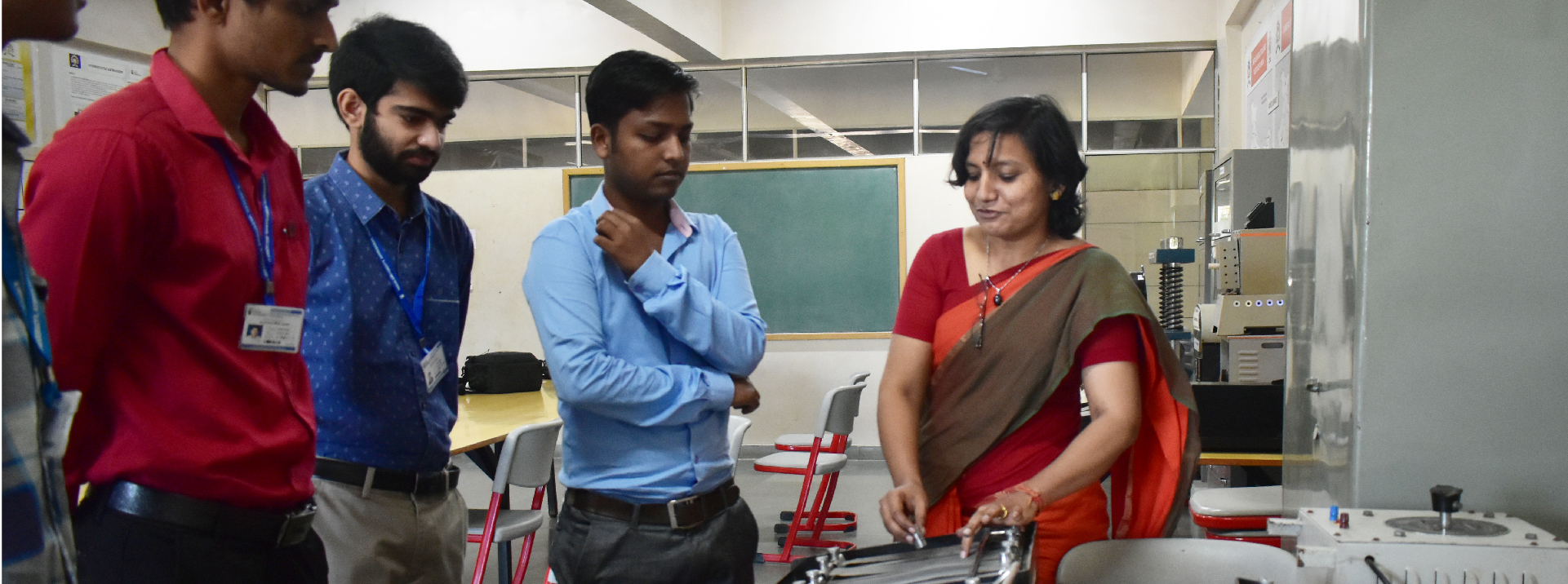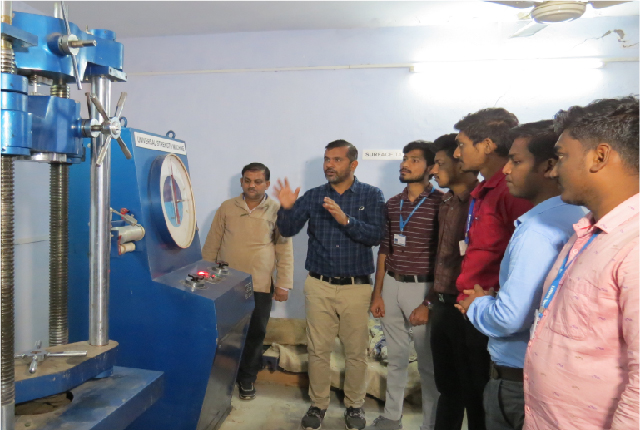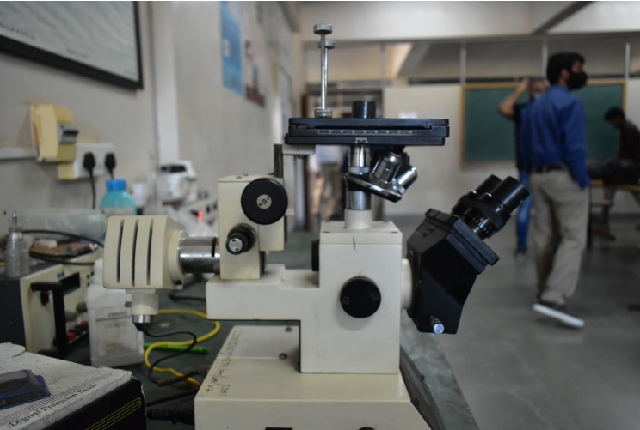Announcement
Get Ready for INDUS CUP 2K26! | Dates: 5–10 January 2026 | Stand a Chance to Win Cash Prizes up to ₹10,00,000!...Read more Get Ready for INDUS CUP 2K26! | Dates: 5–10 January 2026 | Stand a Chance to Win Cash Prizes up to ₹10,00,000!
We are excited to announce the Indus Hackathon 2025, an exhilarating one-day event organized by the CSE Department of Indus University....Read more We are excited to announce the Indus Hackathon 2025, an exhilarating one-day event organized by the CSE Department of Indus University.
26th ISTE Faculty Annual State Convention will be held at Indus University on April 27, 2023....Read more 26th ISTE Faculty Annual State Convention will be held at Indus University on April 27, 2023.
Get Ready for INDUS CUP 2K26! | Dates: 5–10 January 2026 | Stand a Chance to Win Cash Prizes up to ₹10,00,000!...Read more Get Ready for INDUS CUP 2K26! | Dates: 5–10 January 2026 | Stand a Chance to Win Cash Prizes up to ₹10,00,000!
We are excited to announce the Indus Hackathon 2025, an exhilarating one-day event organized by the CSE Department of Indus University....Read more We are excited to announce the Indus Hackathon 2025, an exhilarating one-day event organized by the CSE Department of Indus University.
26th ISTE Faculty Annual State Convention will be held at Indus University on April 27, 2023....Read more 26th ISTE Faculty Annual State Convention will be held at Indus University on April 27, 2023.

The field of metallurgical Engineering deals with the production of metals from their ores and making of metallic components via various processes. Fundamental knowledge in materials science related to processing, tailoring the properties, structure-properties relations is shared with students. The properties, performance, and functionality of materials are improved based on metallurgy and materials science investigations. This study contributes to improving the quality of life by developing materials with excellent properties, high performance, and various functionality. Metallurgical Engineering is an essential branch of engineering that deals with studying the chemical and physical behavior of metallic elements, their inter-metallic mixtures, and their alloys.
At Indus University, we offer one of the best Metallurgical Engineering Colleges in Gujarat. The Department of Metallurgical Engineering started in the year 2006 offering a bachelor's degree in metallurgical engineering(B.Tech) and master's degree in metallurgical engineering. As the top Metallurgical Engineering college in Ahmedabad Gujarat, the Department has highly skilled and experienced faculty members specializing in different advanced fields.
The Department of Metallurgical Engineering is dedicated to educate students in designing, producing components, and developing fundamental understanding of materials by establishing the relationships between processing parameters, structure, properties, and performance of components for various applications.
In addition, the program also covers innovative methods to produce nanostructured and amorphous metals with excellent properties. In 2024, the department achieved 100% placement for our students. Some major companies that visit us for campus placement of our students are: ArcelorMittal Nippon Steel India, Isgec Hitachi Zosen Ltd., Saarloha, Godrej, Welspun, Ratnamani, Tata Engineering Services, Tata Refractories etc., with a pay package in the range of 4.5–6.77 lakhs per year. Our graduates successfully secured admission in reputed universities in the USA, Canada, and Germany, U.K., and Australia.
The Admission Committee for Professional Courses (ACPC) will admit students based on merit on 50% of the sanctioned strength for each course. The student needs to register himself with ACPC after the result.
50% seats of the sanctioned strength of each course are Management Quota, admission of which is handled by the institute as per guidelines of ACPC.
Minimum Aggregate 45% in Physics, Chemistry & Mathematics, Theory exam in H.S.C. of any boards.
Course Duration
4 Years (8 Semesters)
Engineering proficiency: Apply the knowledge of mathematics, science, engineering fundamentals and an engineering specialization to solve complex engineering issues.
Analysis: Formulate, Identity, review research writings, and analyze complex engineering issues reaching verified findings using first principles of mathematics, natural sciences, and engineering.
Design & development solutions: Design solutions for complicated engineering problems and design system elements or methods that meet the identified needs, considering safety issues and cultural and environmental concerns properly.
Sustainability and Environment: Understand the effect of professional engineering solutions in societal and environmental contexts and exemplify the understanding of and need for endurable development.
Individual and teamwork: Function effectively as an individual and as a member or leader in diverse teams and multidisciplinary settings.
Communication: Communicate on complicated engineering exercises with the engineering community and society at extensive, such as understanding and documenting effective reports and design documentation to make effective presentations and receive clear instructions.
Project management: Display details and understanding of the engineering and management principles and apply these to one's own assignment as a member and leader in a team to work projects and in multidisciplinary backgrounds.
The Department of Materials and Metallurgical Engineering imparts formal education in the field of materials and Metallurgical Engineering along with hands-on practice. The Department is equipped with sophisticated instruments such as an image analysis system, metallurgical microscope, spectrometer, complete foundry sand testing facility, mineral processing equipment, induction melting unit and heat treatment furnaces.
The foundry laboratory is equipped with all foundry sand testing equipment. Hands-on practice on foundry technology is provided through "Indus Foundry Training and Research Centre" (IFTARC). The Welding Laboratory is housed with T.I.G. and M.I.G. welding facility for metal joining processes.
This Laboratory is equipped with basic Non–Destructive Testing (NDT) equipment for testing such as liquid penetrant testing (LPT), magnetic particle testing (MPT) and ultrasonic testing (UT). The students carry out experiments using this equipment. Corrosion experiments are performed relating to deposition by electrolytic method and dissolution under various electrolytes.
Microstructural study of various metals and alloys, including the determination of volume fractions of phases and their distribution, are carried out by the UG and PG students using microscopes and image analysis system, and facility of furnaces for the heat treatment of metals and alloys under controlled atmosphere are available in this Laboratory.
Mineral dressing and mineral processing are two crucial components in process metallurgy. Its laboratory is equipped with mineral dressing equipment such as jaw crusher, roll crusher, ball mill, sieve shaker, and floatation cell. With regard to mineral processing, drier, mixer, pelletizer and sintering/firing units are available.
Metallurgical Engineers are in massive demand due to their necessity in every field that produces, buys, sells, purifies or manufactures metallurgic developments. The metallurgical engineer can also get positioned in different research programs or public and government sectors where they are offered a decent remuneration.
The practical knowledge acquired during the course makes its students ready to work in real work situations accordingly and the course also delivers many career opportunities. Some of the major career options to choose from after completion of the course include:
The Training & Placement Department (T & P Dept.) at Indus University has a separate team that bridges two essential ends: academia and industry. It demonstrates a link between educational institutions, university departments, and businesses.
The focal point for career counselling for university students pursuing studies in all programmes and streams is the Training & Placement Department (T & P Dept.). It provides students with comprehensive career options by assisting them in choosing and pursuing their ideal vocations.
The Admission Committee for Professional Courses (ACPC) will admit students based on merit on 50% of the sanctioned strength for each course. The student needs to register himself with ACPC after the result.
50% seats of the sanctioned strength of each course are Management Quota, admission of which is handled by the institute as per guidelines of ACPC.
Minimum Aggregate 45% in Physics, Chemistry & Mathematics, Theory exam in H.S.C. of any boards.
Course Duration
4 Years (8 Semesters)
Engineering proficiency: Apply the knowledge of mathematics, science, engineering fundamentals and an engineering specialization to solve complex engineering issues.
Analysis: Formulate, Identity, review research writings, and analyze complex engineering issues reaching verified findings using first principles of mathematics, natural sciences, and engineering.
Design & development solutions: Design solutions for complicated engineering problems and design system elements or methods that meet the identified needs, considering safety issues and cultural and environmental concerns properly.
Sustainability and Environment: Understand the effect of professional engineering solutions in societal and environmental contexts and exemplify the understanding of and need for endurable development.
Individual and teamwork: Function effectively as an individual and as a member or leader in diverse teams and multidisciplinary settings.
Communication: Communicate on complicated engineering exercises with the engineering community and society at extensive, such as understanding and documenting effective reports and design documentation to make effective presentations and receive clear instructions.
Project management: Display details and understanding of the engineering and management principles and apply these to one's own assignment as a member and leader in a team to work projects and in multidisciplinary backgrounds.
The Department of Materials and Metallurgical Engineering imparts formal education in the field of materials and Metallurgical Engineering along with hands-on practice. The Department is equipped with sophisticated instruments such as an image analysis system, metallurgical microscope, spectrometer, complete foundry sand testing facility, mineral processing equipment, induction melting unit and heat treatment furnaces.
The foundry laboratory is equipped with all foundry sand testing equipment. Hands-on practice on foundry technology is provided through "Indus Foundry Training and Research Centre" (IFTARC). The Welding Laboratory is housed with T.I.G. and M.I.G. welding facility for metal joining processes.
This Laboratory is equipped with basic Non–Destructive Testing (NDT) equipment for testing such as liquid penetrant testing (LPT), magnetic particle testing (MPT) and ultrasonic testing (UT). The students carry out experiments using this equipment. Corrosion experiments are performed relating to deposition by electrolytic method and dissolution under various electrolytes.
Microstructural study of various metals and alloys, including the determination of volume fractions of phases and their distribution, are carried out by the UG and PG students using microscopes and image analysis system, and facility of furnaces for the heat treatment of metals and alloys under controlled atmosphere are available in this Laboratory.
Mineral dressing and mineral processing are two crucial components in process metallurgy. Its laboratory is equipped with mineral dressing equipment such as jaw crusher, roll crusher, ball mill, sieve shaker, and floatation cell. With regard to mineral processing, drier, mixer, pelletizer and sintering/firing units are available.
Metallurgical Engineers are in massive demand due to their necessity in every field that produces, buys, sells, purifies or manufactures metallurgic developments. The metallurgical engineer can also get positioned in different research programs or public and government sectors where they are offered a decent remuneration.
The practical knowledge acquired during the course makes its students ready to work in real work situations accordingly and the course also delivers many career opportunities. Some of the major career options to choose from after completion of the course include:
The Training & Placement Department (T & P Dept.) at Indus University has a separate team that bridges two essential ends: academia and industry. It demonstrates a link between educational institutions, university departments, and businesses.
The focal point for career counselling for university students pursuing studies in all programmes and streams is the Training & Placement Department (T & P Dept.). It provides students with comprehensive career options by assisting them in choosing and pursuing their ideal vocations.

An imaginative educational plan of this program will empower understudies..

An imaginative educational plan of this program will empower understudies..